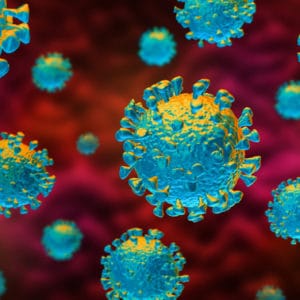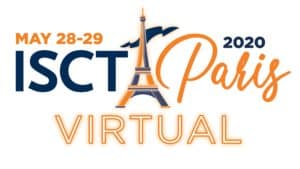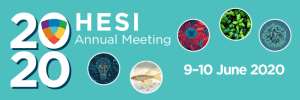New HESI Publication:
Bridging the Gap on COVID-19 Testing

Current demand for the SARS-CoV-2 testing is straining material resources and labor capacity around the globe. Despite broad consensus that more testing is needed, pragmatic guidance towards realizing this objective has been limited. A newly published paper titled “All In: A Pragmatic Proposal for COVID-19 Testing and Action on a Global Scale,” led by HESI’s Executive Director and a team of public health, virology, clinical, molecular biology, and regulatory scientists from three countries, responds to this need.
This publication includes a meta-analysis of rapidly evolving SARS-CoV-2 testing methods and a novel, geographically agnostic framework (The 4Ps Framework) for implementation of these methods to address changing public health needs during the pandemic. The 4Ps (Prioritize, Propagate, Partition, and Provide) are described in terms of specific opportunities to enhance the volume, diversity, characterization, and implementation of COVID-19 testing.
HESI is actively exploring new ways to support the global health community in response to COVID-19 as described in this publication and via several of our ongoing scientific programs. If you have questions or ideas or would like to learn more about how to support HESI’s efforts to address COVID-19, please contact hesi@hesiglobal.org with the subject header COVID-19 Support.
Cardiac Safety Committee
Request for Proposals

The HESI Cardiac Safety Committee seeks research proposals for studies involving human-relevant, mechanism-based assays evaluating cardiac safety liabilities.
In 2019, the HESI Cardiac Safety Committee was awarded a U01 grant from the U.S. FDA on the “Evaluation of Integrated Human-Relevant Approaches to Identify Drug-Induced Cardiovascular Liabilities.” This grant will support HESI in funding and managing novel, in vitro experimental studies to develop targeted mechanistic data to inform drug safety assessment for key cardiac “failure modes.”
HESI Cardiac Safety Committee members identified six main failure modes, cardiovascular liabilities contributing to drug attrition, as follows:
- Vasoactivity changes (blood pressure/heart rate)
- Inotropy changes (contractility/ejection fraction)
- Action potential changes (electrophysiology)
- Cardiomyocyte/myocardial injury (myocardial necrosis/hypertrophy)
- Valvular injury/proliferation (regurgitant flow)
- Endothelial injury/coagulation (hemorrhage, thrombosis)
HESI is seeking proposals for a 12-month subaward under this grant for studies involving human-relevant, mechanism-based assays evaluating cardiac safety liabilities. Interested applicants are required to first submit a Letter of Intent detailing scientific merit and study feasibility. Letters of Intent are due 8 June 2020.
Read more about the funding, timelines, and eligibility here. Full details and award documents are available here. Contact Jennifer Pierson (jpierson@hesiglobal.org) with questions.
Cardiac Safety Committee
and COVID-19

HESI has been monitoring the COVID-19 pandemic closely and is exploring ways we can support the response efforts. It has become apparent through the news and peer-reviewed literature that cardiac safety is a concern with regard to the virus itself as well as treatment options. Several of the top treatment options in clinical trials right now carry cardiac liabilities and many of these are being given in combination with other drugs. As such, it may be beneficial to have additional non-clinical data on these therapies and combinations to help inform potential clinical risks.
HESI has a unique position as a convener of both regulators and drug developers (among other groups) and may have some additional insight, expertise, and even data to offer to this situation. The HESI Cardiac Safety Committee is collaborating to share information and data related to cardiac liabilities and some potential COVID-19 therapies and is exploring ways to use some of the latest approaches (i.e., CiPA approaches in vitro, in silico, and in vivo) to better understand and help inform cardiac risks. A new subteam under the Cardiac Safety Committee has been formed and began discussions in early May. For more information or to join the new subteam, contact Jennifer Pierson (jpierson@hesiglobal.org).
Genetic Toxicology
Technical Committee (GTTC)
Work With OECD

In April 2020, the OECD Working Group of the National Coordinators for the Test Guidelines Programme (WNT) approved the revision of Test Guideline 488 to recommend the 28+28d design as the preferred protocol for germ cell mutagenicity testing. The work from the HESI Genetic Toxicology Technical Committee (GTTC) Germ Cell Working Group and contributions from other members of the GTTC have been essential for supporting these revisions. In particular, we would like to acknowledge the co-authors on the two GTTC manuscripts that formed the basis for the Test Guideline revisions: Francesco Marchetti, Marilyn Aardema, Carol Beevers, Jan van Benthem, George Douglas, Roger Godschalk, Andrew Williams, Carole Yauk, and Bob Young. The new guideline will become the version of record at the next meeting of the OECD WNT in July 2020.
Additionally, the OECD WNT also approved the Pig-A detailed review paper and validation. Thank you to everyone who contributed to this project by writing sections, sharing data, participating in discussions, and more. This collaborative effort involved support across sectors, including the HESI GTTC, the University of Maryland Center of Excellence in Regulatory Science and Innovation (UM CERSI), FDA Center for Drug Evaluation and Research (CDER), Critical Path Institute, Korean FDA, and the Environmental Mutagen Society of Japan Mammalian Mutagenesis Study Group (JEMS/MMS).
To learn more about the work of the HESI GTTC, click here.
Botanical Safety Consortium
Spring 2020 Activities and Updates

The Botanical Safety Consortium will hold an informational virtual meeting on 29 May 2020 from 9:00 a.m. to 12:45 p.m. (US Eastern). The meeting has the following aims:
- Providing information on the general structure, mission, objectives, and strategy of the Consortium and its technical working groups;
- Recruiting new members; and
- Soliciting input on current scientific challenges and opportunities related to the safety of dietary botanicals.
Click here to register for the meeting and click here for the meeting agenda. Presentations will be recorded and made available after the meeting.
The Consortium was also highlighted in the most recent issue of the NIH Record, available here.
For more information about the Botanical Safety Consortium, including how to join this exciting group, please visit botanicalsafetyconsortium.org or email Connie Mitchell (cmitchell@hesiglobal.org) or Michelle Embry (membry@hesiglobal.org).
CT-TRACS Session at
ISCT Virtual Meeting

The HESI Cell Therapy – TRAcking, Circulation, & Safety (CT-TRACS) Committee is pleased to present a session on “Imaging Cellular Therapeutics” as part of the newly designed International Society for Cell & Gene Therapy (ISCT) Virtual Meeting program, as well as a poster related to the ongoing work of the Tumorigenicity Working Group (poster #3389977). Please note that due to health and safety concerns related to the COVID-19 pandemic, the ISCT 2020 Annual Meeting has been changed to a virtual meeting only.
In the 90-minute session, three guest speakers will share their practical experience in topics ranging from applications of in vivo imaging in various cell-based therapies, its potential for optimization of cellular anti-cancer immunotherapies, and monitoring the intracerebellar administration of natural killer cells.
The pre-recorded session and the poster will be accessible to registered participants online starting 28 May 2020 at 7:00 AM CEST. During the two days of the virtual meeting, delegates will have the opportunity to post questions to speakers, the session chair, and poster presenter via an open chat forum within their respective virtual rooms. After the conclusion of the conference, the session recording and poster will remain available to all delegates for streaming on-demand until 2021.
Register to view these and many other exciting advancements in the fast-moving cell and gene therapy field (free to students)! Rates will go up after 18 May 2020.
For additional session details, click here.
Register Now! 2020 HESI Annual Meeting Virtual Sessions

Don’t miss the chance to register for the 2020 HESI Annual Meeting virtual sessions! The virtual meeting will take place on 9–10 June 2020 and will feature selected live, online presentations and discussion sessions to allow access to some of the content we had planned for our in-person meeting. Click here to register.
Our agenda features exciting speakers on topics such as implementing artificial intelligence approaches to improve human and environmental health protection as well as new scientific programming at HESI.
Featured speakers include:
- Dr. Thomas Miller, King’s College London
- Prof. Jackie Hunter, BenevolentAI
- Dr. Cynthia Rider, National Toxicology Program
Click here to view the full meeting agenda and click here to register.
From the Leadership

COVID-19 has changed daily life for all of us. Telework, video conferences, and social distancing have become the norm. In this new environment, it is more important than ever that HESI keeps working to meet its mission of developing science for a safer and more sustainable world. During this pandemic, that mission has taken on an expanded meaning and a new set of challenges. The Board of Trustees continues to work on its 2020 strategic objectives of increasing global outreach and public sector involvement in scientific programs. The work of the technical committees has not stopped but is being complimented by efforts to harness the expertise of the HESI network to address health and safety issues related to COVID-19. Suggestions are being actively solicited and can be submitted at hesi@hesiglobal.org with the subject header COVID-19 Support.
This is also the time of year when the preparations for the Annual Meeting have been finalized. The planned face-to-face meeting in Amsterdam will now be in a virtual meeting scheduled for 9-10 June 2020. Registration and program information can be found here. I hope you will be able to attend.
Stay healthy! Stay safe!
![]()
Charlene McQueen, PhD
HESI President